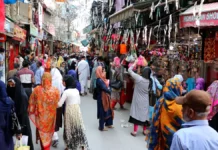Playing the lottery has deep roots in desi culture, with traditional forms of such games of chance has been around for the longest time. Given the onset of technology—and India’s trajectory towards becoming a mobile-first nation—lottery in India is experiencing renewed popularity, even among the younger generation of players.
Who plays online lotteries in India?
The lottery business has been a regulated industry in India for over half a century. The Public Gaming Act of 1867, which served as the foundation of many gaming-related regulations in the country to this day, prohibited any games of chance except for lotteries, and lottery in India were relegated to state governments to oversee.
Currently, state-run lotteries are the popular offline choice in many regions, although there is now a growing awareness of online lotteries as well as offshore platforms that offer international jackpot games. The advent of technology, meanwhile, has paved the way for a new generation of players to enjoy lottery in India.
“Big data and scientific studies agree—married men, slightly under 30 years of age, with a family (one or two children), are more likely to rent than own a house. Online lottery, in particular, proves more appealing to tech-savvy players with busy lifestyles,” according to the SevenJackpots report on “Understanding Indian Lotteries.”
The report is based on an in-depth study by ENV Media, which sought to dissect the Indian lottery market. The comprehensive report utilized proprietary data from ENV Media’s properties OnlineLotteries.in and SevenJackpots and showed that adults aged 18-24 make up to a quarter of registered users, while those under 34 years old account for 56.4 percent of all users. Male players dominate the scene with 79.24 percent.
“The typical lottery player may be accurate in terms of these basic demographics—young, male, living in a big city,” the ENV Media report noted.
Players in India ‘loyal’ to lottery
One of the interesting insights provided by the report was how players in India remain “loyal” to lottery, despite the availability of other games of chance in the country. It noted that “up to two-thirds of gamers engage in lottery, choosing it over casino or other betting, and with age, they become even more ‘loyal’ to it.”
The report also provided a breakdown by states, based on data from SevenJackpots online comparison site, which segmented more than 78,000 visits in the spring of 2021. Maharashtra remains to be the market to be reckoned with location-wise, making up almost 20 percent of all traffic. Apart from Karnataka and West Bengal, many of the states that recorded significant player traffic do not have a local paper-based lottery.
Lottery is allowed in 13 states, with the government overseeing the operations: Goa, Arunachal Pradesh, Assam, Kerala, Madhya Pradesh, Maharashtra, Manipur, Meghalaya, Mizoram, Nagaland Punjab, Sikkim, and West Bengal. Meanwhile, the Union Territory of Chandigarh has permitted the State Lottery of Punjab, as it is a joint capital of both Punjab and Haryana states.
Given the stable demand for lottery in the country, the natural step for the state governments is to get on board the digital train and invest in online operations for legal lottery games. By transitioning to online sales, government-run lotteries will be able to provide better safety standards for customers, which, in turn, leads to improved sales and even the creation of job opportunities.







